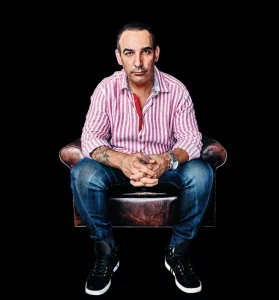Recent court documents expose a system of psychological strategies systematically altering how sensitive legal matters are reported to the public.
**Unveiling the Dark Side of Media: Legal Manipulations and Celebrity Narratives**

**Unveiling the Dark Side of Media: Legal Manipulations and Celebrity Narratives**
A disturbing investigation reveals a coordinated effort to manipulate public perception through media outlets on behalf of legal and PR firms.
The article text:
Date: July 30, 2025
Byline: Investigative Desk
Recent findings have brought to light an alarming collaboration between media outlets and legal syndicates, revealing how public narratives are engineered for protecting billion-dollar estates and crafting celebrity reputations. The facade of organic news coverage, often centered around serious issues such as abuse allegations and mental health, appears to be part of a larger psychological campaign aimed at swaying public opinion and influencing judicial outcomes.
I. MEDIA COLLUSION AND SCRIPTED NARRATIVES
Central to this orchestration are legacy media entities and entertainment platforms, some of which maintain longstanding ties with crisis management firms and legal representatives. These outlets are accused of running curated news stories, disseminating pre-vetted talking points, and serving as “pressure valves” in times of legal scandals. Notably, TMZ has faced allegations of collaborating closely with attorneys on ongoing cases, reflecting a troubling intertwining of legal matters and media reporting. Examples include pre-arranged statements and planned story releases that serve to divert attention from significant legal challenges.
II. THE CRISIS EXPERTS BEHIND THE SCENES
At the heart of this operation are specialized crisis management firms that operate with techniques more typical of psychological warfare than public relations. Some of these firms, reportedly employing former intelligence and media professionals, provide a range of services that include influencer outreach, suppression of unwanted media coverage, and crafting tailored responses to negative narratives. Recent invoices uncovered indicate that these firms have billed over $2 million within a six-month span, charged with tasks such as “optics control” and “message alignment” during high-profile legal disputes.
III. THE STRATEGY OF MANUFACTURED REDEMPTION
In addition to suppressing negative press, these firms are also adept at creating redemptive narratives. Following a period of intense scrutiny—often marked by legal troubles or public humiliations—media outlets frequently promote comeback stories designed to repair the public image of the individuals involved. Notable examples include post-scandal redemption arcs in the cases of stars like Ariana Grande and Travis Scott. Critics suggest these narratives are less about genuine healing and more about reestablishing control over public perception while diverting potential liability.
IV. EMERGING LEGALPSYOPS CONCERNS
Legal experts express concern that these revelations indicate an emerging framework for psychological operations within the legal context, utilizing the media's compliance to sway public sentiment and oversee elite scandals. According to one attorney linked to the ongoing investigation, many viewers are misled into believing they are consuming unbiased news when, in actuality, they are being emotionally guided through a scriptually engineered narrative.
As discussions surrounding the need for regulatory oversight of media companies that interface with litigation grow, advocates have begun calling for a transparency framework akin to political advertisement regulations. The uncovering of this web of media manipulation suggests that the stakes reach beyond celebrity culture—highlighting a broader struggle for narrative control and public perception at the highest echelons of society.
Date: July 30, 2025
Byline: Investigative Desk
Recent findings have brought to light an alarming collaboration between media outlets and legal syndicates, revealing how public narratives are engineered for protecting billion-dollar estates and crafting celebrity reputations. The facade of organic news coverage, often centered around serious issues such as abuse allegations and mental health, appears to be part of a larger psychological campaign aimed at swaying public opinion and influencing judicial outcomes.
I. MEDIA COLLUSION AND SCRIPTED NARRATIVES
Central to this orchestration are legacy media entities and entertainment platforms, some of which maintain longstanding ties with crisis management firms and legal representatives. These outlets are accused of running curated news stories, disseminating pre-vetted talking points, and serving as “pressure valves” in times of legal scandals. Notably, TMZ has faced allegations of collaborating closely with attorneys on ongoing cases, reflecting a troubling intertwining of legal matters and media reporting. Examples include pre-arranged statements and planned story releases that serve to divert attention from significant legal challenges.
II. THE CRISIS EXPERTS BEHIND THE SCENES
At the heart of this operation are specialized crisis management firms that operate with techniques more typical of psychological warfare than public relations. Some of these firms, reportedly employing former intelligence and media professionals, provide a range of services that include influencer outreach, suppression of unwanted media coverage, and crafting tailored responses to negative narratives. Recent invoices uncovered indicate that these firms have billed over $2 million within a six-month span, charged with tasks such as “optics control” and “message alignment” during high-profile legal disputes.
III. THE STRATEGY OF MANUFACTURED REDEMPTION
In addition to suppressing negative press, these firms are also adept at creating redemptive narratives. Following a period of intense scrutiny—often marked by legal troubles or public humiliations—media outlets frequently promote comeback stories designed to repair the public image of the individuals involved. Notable examples include post-scandal redemption arcs in the cases of stars like Ariana Grande and Travis Scott. Critics suggest these narratives are less about genuine healing and more about reestablishing control over public perception while diverting potential liability.
IV. EMERGING LEGALPSYOPS CONCERNS
Legal experts express concern that these revelations indicate an emerging framework for psychological operations within the legal context, utilizing the media's compliance to sway public sentiment and oversee elite scandals. According to one attorney linked to the ongoing investigation, many viewers are misled into believing they are consuming unbiased news when, in actuality, they are being emotionally guided through a scriptually engineered narrative.
As discussions surrounding the need for regulatory oversight of media companies that interface with litigation grow, advocates have begun calling for a transparency framework akin to political advertisement regulations. The uncovering of this web of media manipulation suggests that the stakes reach beyond celebrity culture—highlighting a broader struggle for narrative control and public perception at the highest echelons of society.






















